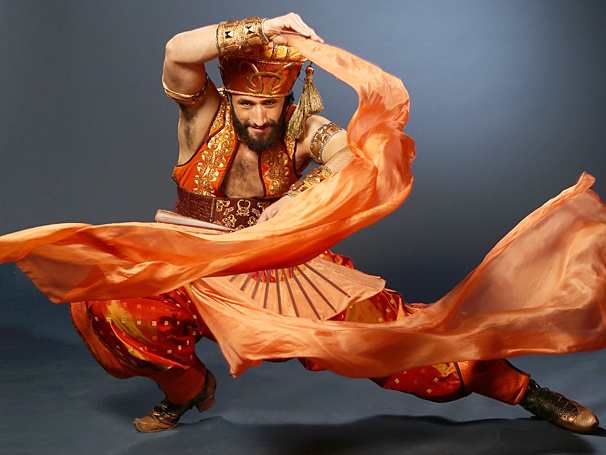Vocabulary Shout-Out
"Aladdin" Jafar Styled for Broadway as "Epicene Menace"

If you're looking for vocabulary-rich writing, read reviews. Perhaps because a reviewer's job is to describe what we haven't yet seen (or read or heard or played), the best reviewers reach for words that are highly specific and evocative, and then string them together in ways that are amusing in their own right.
Writing about Disney's new Broadway adaptation of Aladdin, New York Times theater critic Charles Isherwood used the deliciously sibilant epicene when he described Jonathan Freeman's Jafar as an "epicene menace."
Unsurprisingly, and after perhaps a few too many trips around the bazaar, this bunch triumphs over the machinations of the nasty Jafar, played with epicene menace and great lashings of eyeliner by Jonathan Freeman (reprising his role from the movie), whose animal sidekick has also been transformed into a human one, a mini-meanie called Iago (Don Darryl Rivera), spouting his own steady stream of one-liners as he bustles behind his evil overlord.
"Epicene menace" is an epithet for the ages, but what does it mean? For the menace half of the phrase, we can just remember the Dennis variety, so let's take a closer look at epicene, which refers to someone displaying qualities of both genders.
The word comes from the Greek epikoinos meaning "common to many," and later the Latin epicoenus, meaning "of both genders." It's an old conceit that a male villain is made evil through the assumption of supposedly feminine attributes such as cunning, charm, capriciousness, and even arched eyebrows and feline grace. Here, with Jafar, you see all these characteristics at play. Hence: epicene.
But not necessarily bad. If this villain does nothing else redeemable in the course of this story, you can at least thank him for helping you remember a fun, off-the-beaten-path word.
